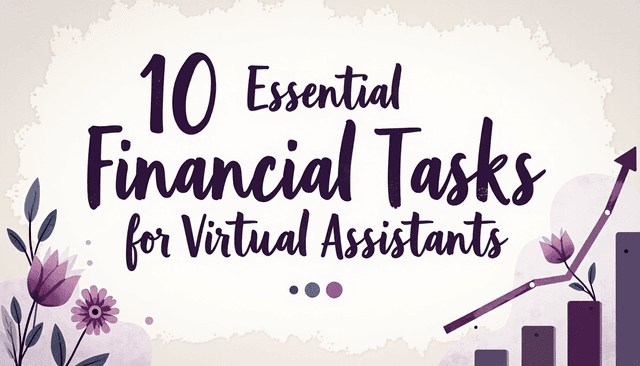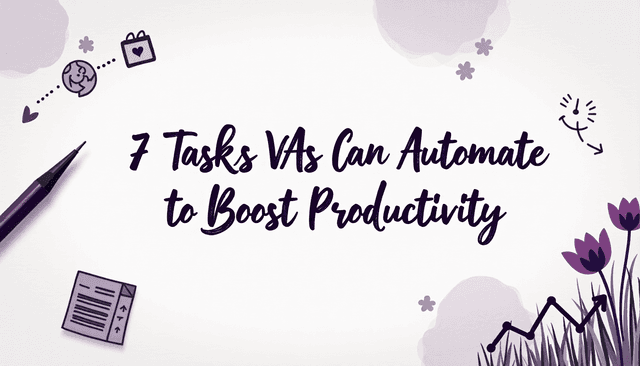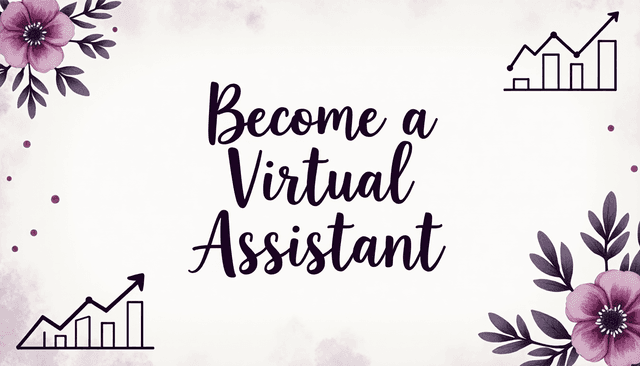Is Virtual Assistant Job Stressful?
September 21, 2024 • 7 min read
Explore the world of virtual assistant jobs, their unique challenges, and rewards. Learn strategies to manage stress and thrive in this flexible career.
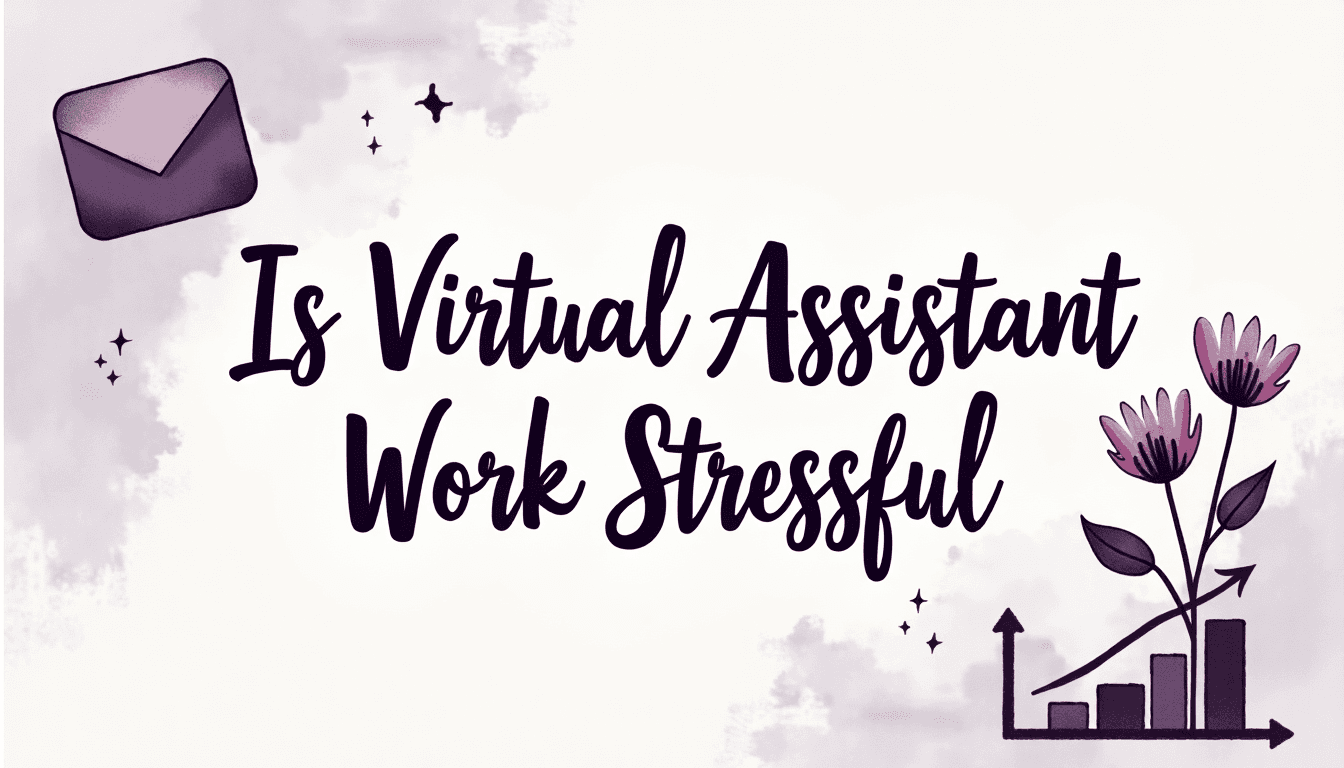
You're sipping coffee in your pajamas, answering emails, and managing tasks for clients worldwide. Sounds like a dream job, right? But is being a virtual assistant (VA) really stress-free?
Virtual assistant jobs have unique challenges. You enjoy working from home and setting your schedule. But you also face pressure from juggling clients, meeting deadlines, and adapting to new tech.
Many VAs balance flexibility and diverse work with time management issues, communication hurdles, and occasional isolation.
Sarah, a VA managing social media for five clients, shares her experience. "I love the variety, but keeping up with changing algorithms and client expectations can be overwhelming."
The stress level of a VA job often depends on:
- Your boundary-setting skills
- Your time management ability
- Your clients' demands
- Your tech comfort level
While all jobs have stress, many VAs find the rewards outweigh the challenges. With the right strategies and tools for task management, VAs can thrive in this dynamic career.
So, is a virtual assistant job stressful? It can be. But with good planning and self-care, it's also a fulfilling and flexible career choice.
Virtual assistant jobs can be stressful, balancing flexibility with challenges like time management, client expectations, and isolation. However, with effective strategies for task management, communication, and self-care, many VAs find the rewards outweigh the challenges, making it a fulfilling and flexible career choice.
Introduction
Virtual assistants are the unsung heroes of modern business. They handle tasks from inbox management to social media scheduling, all from home. It's no wonder VA jobs are booming.

Why the surge? Businesses see the value in remote talent. It's cost-effective and taps into a global skill pool. Workers want freedom from the 9-to-5 grind and control over their schedules.
As work-life balance gains importance and companies go remote, virtual assistant demand has soared. From solo entrepreneurs to big corporations, everyone needs skilled VAs.
Whether you're eyeing a career change or seeking virtual help, understanding this role is key. Let's explore the world of virtual assistants and see if it's as stress-free as it seems.
The Nature of Virtual Assistant Work
Virtual assistants (VAs) are remote pros who offer various services to clients from afar. They keep businesses running smoothly behind the scenes.
Types of VA Jobs
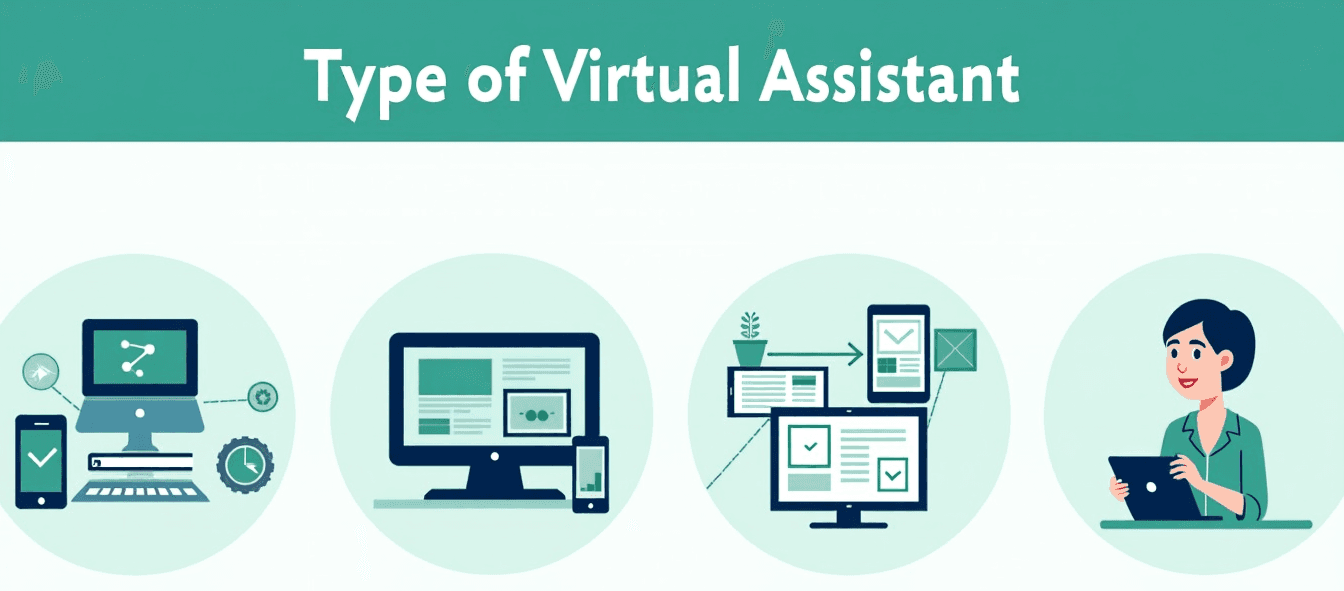
VAs take on many roles:
- Administrative support
- Social media management
- Customer service
- Bookkeeping
- Content creation and editing
Skills for Success
To excel as a VA, you need:
- Strong communication
- Tech skills
- Time management
- Adaptability
- Self-motivation
Being a VA isn't just about tasks—it's about building client trust. With the right skills and mindset, you can turn this flexible job into a rewarding career.
Potential Stress Factors in Virtual Assistant Jobs
Virtual assistant work is rewarding but challenging. Let's look at common stress factors VAs face daily.
Time Management Challenges
Juggling multiple clients and tasks is tricky. VAs often deal with:
- Tight deadlines
- Work spilling into personal time
- Constant task prioritization
Communication Hurdles
Clear communication is vital but not always easy. VAs face:
- Time zone differences
- Language barriers
- Building rapport remotely
Technical Troubles
Technology can be both friend and foe. Common issues include:
- Unexpected Wi-Fi problems
- Being your own IT support
- Keeping up with new tools
Client Expectations
Managing client relationships can be tough. VAs often handle:
- Unrealistic demands
- Difficult clients
- Pressure to deliver top work consistently
Isolation Blues
Working from home isn't all comfort. Many VAs struggle with:
- Quiet home offices
- Missing office social interaction
- Potential mental health impacts
These challenges are real, but not insurmountable. With the right strategies and tools, VAs can thrive and enjoy the benefits of virtual work.
Stress Management Strategies for Virtual Assistants
Feeling overwhelmed? You're not alone. Here are practical ways to manage stress and boost productivity.
Effective Time Management Techniques
Make the most of your time:
- Use productivity apps to track tasks and deadlines
- Try time-blocking for different tasks
- Set SMART goals
Establishing Clear Boundaries
Keep work from taking over:
- Create a dedicated workspace
- Set and stick to work hours
- Learn to say "no" to extra work when needed
Developing Strong Communication Skills
Avoid misunderstandings:
- Use various communication tools
- Practice active listening
- Address potential issues early
Continuous Learning and Skill Development
Stay ahead of the curve:
- Follow industry trends
- Take online courses
- Learn complementary skills
Building a Support Network
Remember, you're not alone:
- Join VA communities online
- Participate in forums
- Find a mentor
By using these strategies, you'll be better equipped to handle VA work stress. Remember, stress management is ongoing. Be patient and celebrate small wins.
The Positive Aspects of Virtual Assistant Jobs
Being a VA has many perks. Let's explore the bright side of this popular career.
Flexibility: Your Time, Your Rules
As a VA, you control your schedule. This flexibility allows you to:
- Work during your most productive hours
- Balance personal and work commitments
- Avoid rush hour and improve work-life balance
Diverse Experience: A Career Buffet
VA work offers variety. You might manage social media one day and organize events the next. This diversity:
- Keeps work exciting
- Builds a versatile skill set
- Opens new career paths
Financial Perks: More Money, Less Expense
VA jobs can be lucrative. Without commuting and work clothes costs, you keep more of what you earn. Plus:
- Specialized VA rates can match traditional salaries
- You can boost income with multiple clients
- Efficient tools help you manage more clients
While flexibility and diverse experiences are great, the ability to grow your VA business truly sets this career apart. With the right tools and mindset, your potential is limitless.

Conclusion
Is being a virtual assistant stressful? It's not a simple yes or no. Like any job, it has challenges and rewards.
Main stress factors include:
- Juggling multiple clients and tasks
- Dealing with time zones
- Solving tech issues alone
- Managing client expectations
- Combating isolation
But for each challenge, there's a solution:
- Use time management tools
- Set clear client boundaries
- Invest in tech skills
- Communicate openly
- Build a VA support network
The VA life isn't just about managing stress—it's about embracing the positives. Think of the work flexibility, diverse experience, and earning potential.
Your well-being matters. Prioritize self-care and stress management. Take breaks, exercise, and unplug sometimes.
Being a VA can be demanding, but it's also rewarding. Embrace challenges, celebrate wins, and keep growing. You've got this!
Frequently Asked Questions
How can I deal with the isolation that comes with being a virtual assistant?
To combat isolation as a virtual assistant, try joining online VA communities and forums, participating in virtual networking events, scheduling regular video calls with colleagues or other VAs, and making time for social activities outside of work. It's also beneficial to create a dedicated workspace at home and maintain a routine that includes breaks for social interaction.
What are some essential tools for managing multiple clients as a virtual assistant?
Essential tools for managing multiple clients as a VA include project management software like Trello or Asana, time-tracking apps such as RescueTime or Toggl, communication platforms like Slack or Zoom, and cloud storage solutions like Google Drive or Dropbox. Additionally, using a reliable calendar app and a password manager can help streamline your workflow and keep client information secure.
How can I set realistic expectations with clients to avoid stress?
To set realistic expectations with clients, start by clearly defining your services, working hours, and response times in your contract. Communicate openly about project timelines and potential challenges. Use a detailed onboarding process to understand client needs and explain your workflow. Regularly check in with clients to ensure alignment, and don't hesitate to renegotiate terms if workload or expectations change. Remember, it's okay to say no to unreasonable demands.
What strategies can I use to continuously improve my skills as a virtual assistant?
To continuously improve your skills as a VA, consider taking online courses in areas relevant to your services, such as digital marketing or project management. Stay updated with industry trends by following VA blogs and podcasts. Attend virtual conferences and webinars. Practice new tools and technologies regularly. Seek feedback from clients and peers, and consider finding a mentor in the VA industry. Additionally, set aside time each week for learning and skill development.
